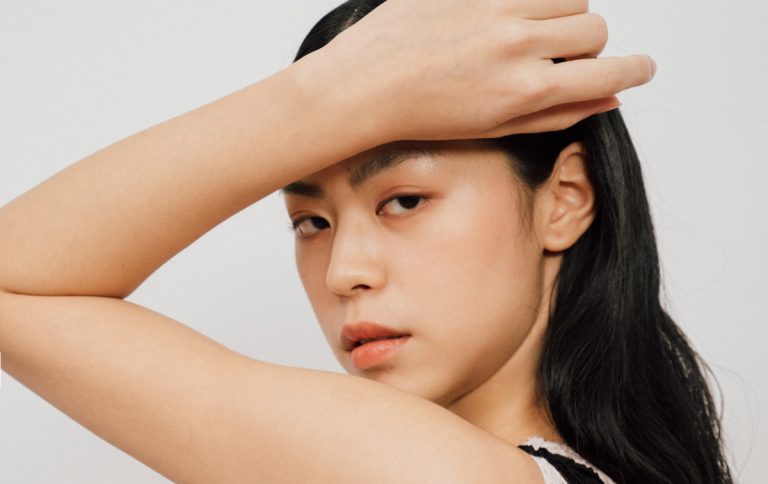How conscious consumerism is impacting the beauty industry
Following David Attenborough’s Life on Our Planet documentary on Netflix, we are once again reminded of the responsibility we have to reduce our impact on the planet. We are all becoming more aware of our impact on the planet and are calling out brands that are making meaningless environmental pledges, dubbed #TheAttenboroughEffect.
Redefining clean beauty
Firstly, we want you to make eco-friendly decisions on beauty products with all the right information. There is a popular conversation taking place at the moment around clean beauty, and if you haven’t yet heard about it, we’re here to explain and fill you in on all the important details.
Often, companies are called out for ‘greenwashing’, which is where they mislead consumers into thinking their products or the way they do business is sustainable and has less impact on the environment than it actually does.
You might have noticed terms like ‘clean’, ‘natural’, ‘non-toxic’, and ‘free from nasties’ on skincare products like moisturisers and serums. This confuses consumers and divides beauty products into ’clean’ and ‘dirty’. Some brands misuse the term ‘clean’ and mislead consumers into thinking some ingredients are toxic to the user. Hijacking the meaning, which can be used for ingredients that have been sourced ethically and sustainably, is a form of greenwashing.
UK women are spending more money than ever on skincare and this is expected to grow even more in the next 15 years. Some brands are trying to profit off environmentally conscious consumers with empty fears about chemicals. But everything is a chemical—water, your favourite juice, your shampoo and conditioner, the dihydroxyacetone in your fake tan, and the ingredients in your skincare. How they’re sourced is what you should be looking for.
Dermatologist Dr Anjali Mahto, however, advises that there is absolutely nothing to worry about regarding the ingredients Masterson singles out. Think of the key ingredients in your actives like retinol, vitamin C, and hyaluronic acid. Synthetic chemicals that help improve the texture and appearance of our skin.
It’s really important to understand what you’re looking for. What makes a brand or product sustainable can depend on a number of factors. If you’re looking to shop beauty products and brands that are sustainable, look for:
– Zero waste or refillable packaging
– Ethical sourcing
– Resource and waste management
– Make charitable donations
– Cruelty-free status/vegan
– Local/national production
– Doesn’t have palm oil
– Thoughtful packaging
Sustainable options for your favourite beauty products
Here, we’ll look at products that have at least one of the above so you can make informed decisions about your beauty products.
Bamboo tools saving the world one piece of wood at a time
Did you know that the UK uses 12.3 billion plastic cotton buds a year? That is more than any other European country. Hydro Phil biodegradable bamboo and cotton swabs are available in recycled packaging, as well as toothbrushes and soap boxes. Now, that is the definition of sustainable material!
While we shouldn’t actually be using them to stick in our ears, plastic cotton buds can be super useful when correcting makeup errors and sharpening our eyeliner to be the perfect cat-eye. So now, you can do this without the guilt of filling our oceans with sticks of plastic.
Conscious cosmeceuticals
Medik8 offers an impressive range of skincare products with effective ingredients. This brand uses cold processes where possible, making products at room temperature to avoid burning energy by heating ingredients. In terms of packaging, it has replaced plastic with recycled card and has serum bottles and pipettes made from glass.
Clean ingredients in skin food
Weleda body and skincare brand is the perfect example of a clean beauty brand. It derives over 75 per cent of its natural ingredients ethically from plants from biodynamic, organic farming, or controlled wild collection. The brand has committed to supporting biodiversity, protecting life and habitats (ranging from the soil, microorganisms, water, air, plants, and animals) when sourcing the natural ingredients used. None of its products contain plastic.
More paradise, less plastic
For all the men and women who incorporate tanning into their weekly beauty routine, we can go through many bottles throughout the year. Isle of Paradise tanning water has refillable eco-pouches available for those of us looking to maintain a healthy glow safely. These refillable pouches minimise packaging waste, saving 81 per cent on plastic, and Isle of Paradise sources ingredients ethically while regulating its manufacturing processes to reduce its environmental impact.
Isle of Paradise pledge to be totally transparent in its processes, setting realistic targets so we can tan with peace of mind that it is having minimal impact on our planet.





